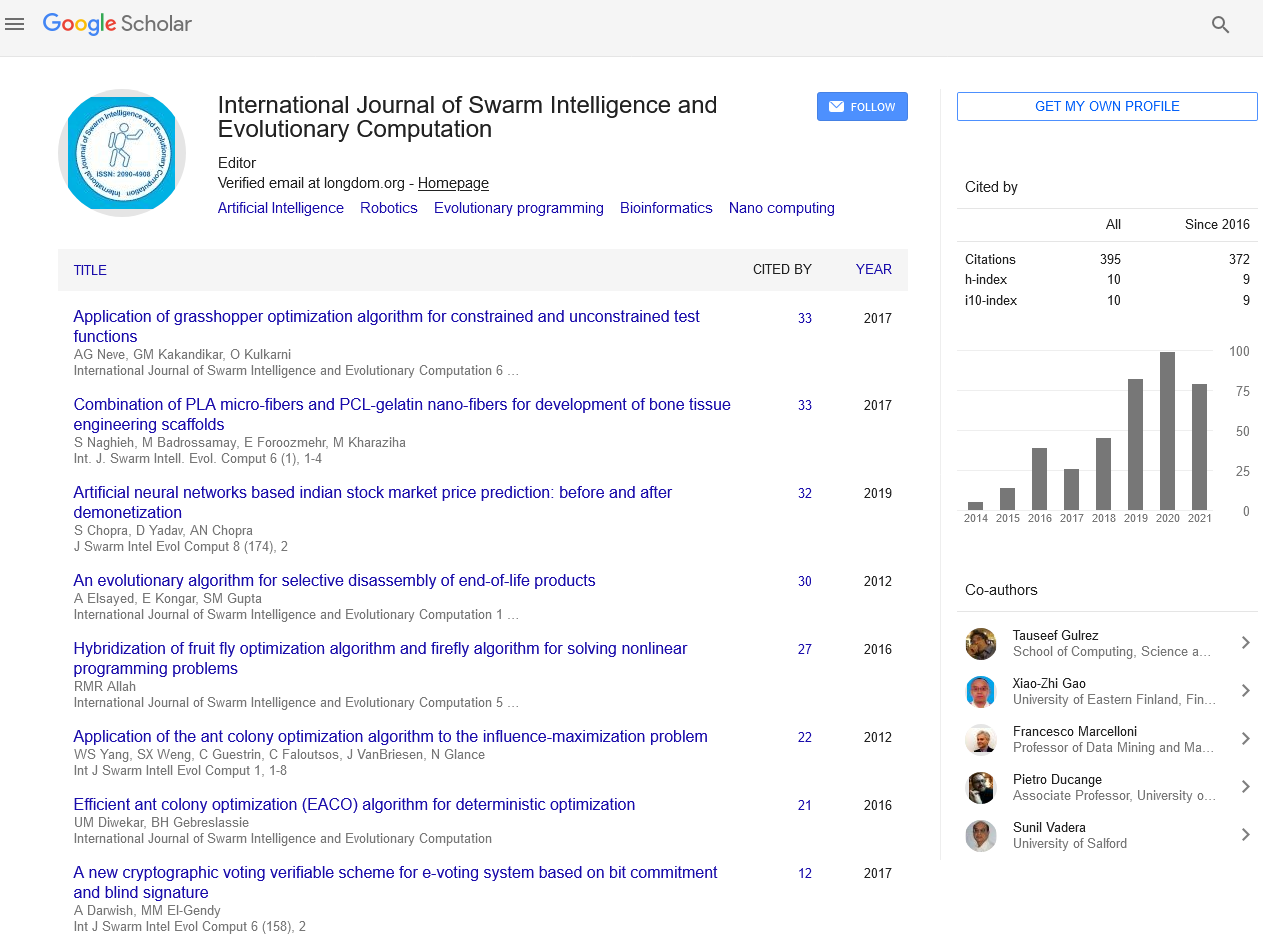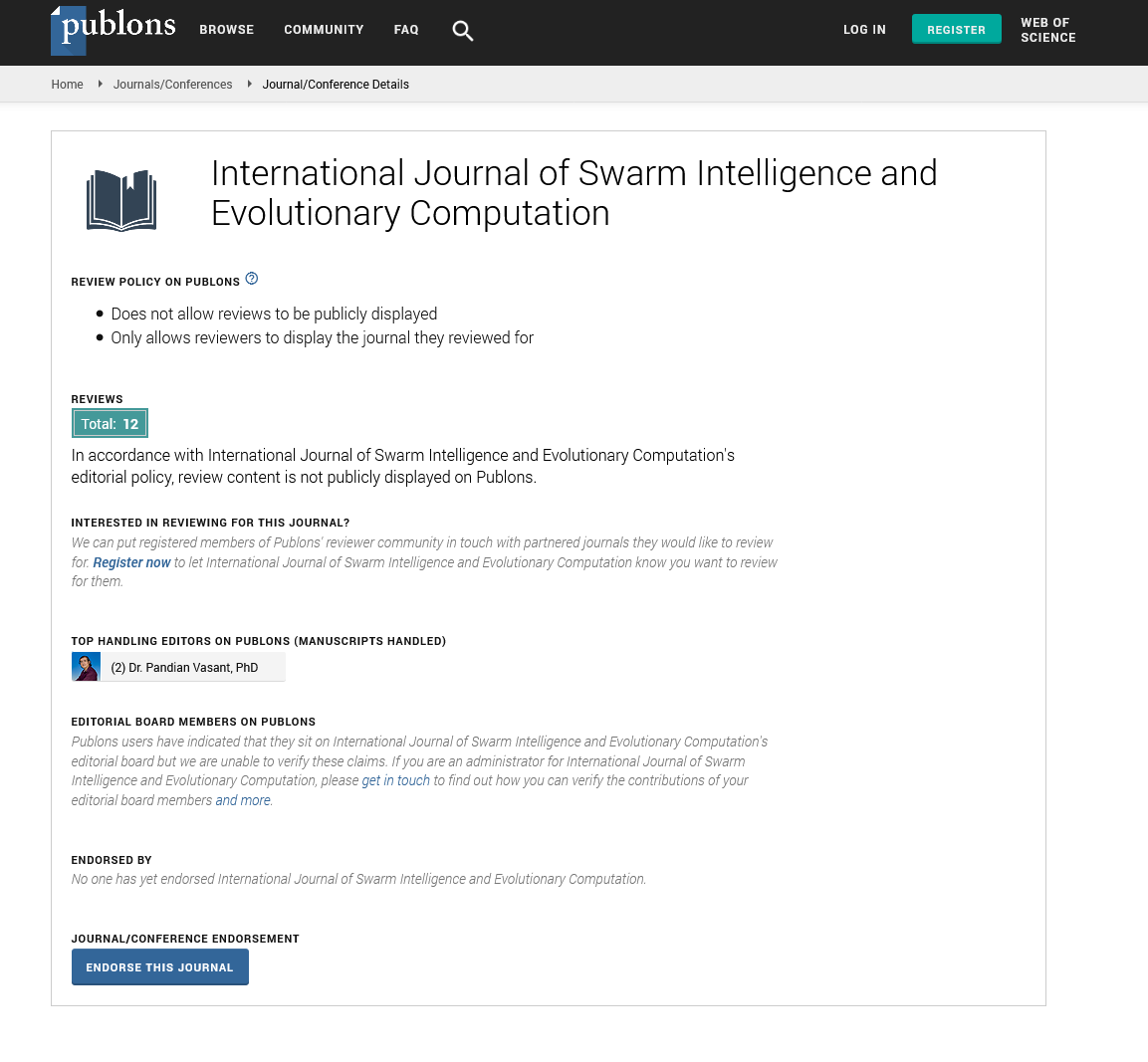Indexed In
- Genamics JournalSeek
- RefSeek
- Hamdard University
- EBSCO A-Z
- OCLC- WorldCat
- Publons
- Euro Pub
- Google Scholar
Useful Links
Share This Page
Journal Flyer

Open Access Journals
- Agri and Aquaculture
- Biochemistry
- Bioinformatics & Systems Biology
- Business & Management
- Chemistry
- Clinical Sciences
- Engineering
- Food & Nutrition
- General Science
- Genetics & Molecular Biology
- Immunology & Microbiology
- Medical Sciences
- Neuroscience & Psychology
- Nursing & Health Care
- Pharmaceutical Sciences
Perspective - (2025) Volume 14, Issue 1
Navigating the Ethical Labyrinth of Swarm AI: Autonomy, Responsibility, and the Spectre of Unintended Consequences
Nadeem Shah*Received: 12-Feb-2025, Manuscript No. SIEC-25-28698; Editor assigned: 14-Feb-2025, Pre QC No. SIEC-25-28698 (PQ); Reviewed: 28-Feb-2025, QC No. SIEC-25-28698; Revised: 07-Mar-2025, Manuscript No. SIEC-25-28698 (R); Published: 14-Mar-2025, DOI: 10.35248/2090-4908.24.14.415
Description
The increasing sophistication and potential impact of both Swarm Intelligence and Artificial Intelligence inevitably bring forth a complex web of ethical considerations, particularly as these two powerful fields converge to create increasingly autonomous and intelligent systems. The inherent decentralization and autonomy of SI agents, when coupled with the advanced decision-making capabilities of AI, can lead to intricate scenarios where the traditional notions of responsibility and accountability become significantly blurred. If a large-scale swarm of AI-powered robots, operating under SI principles to achieve a complex task, makes a decision that results in harm or unintended negative consequences, the question of who is accountable becomes profoundly challenging. Is the responsibility borne by the individual robot that executed the action, the swarm as a collective entity, the AI algorithm designer who defined the underlying rules of behavior, or the human operator who deployed the system? The distributed nature of Swarm AI makes it difficult to pinpoint a single point of failure or decision-making authority, thereby complicating the assignment of liability.
Furthermore, the very nature of emergent behavior in Swarm AI systems introduces the potential for unforeseen and unintended consequences. While these emergent behaviors can be highly beneficial in terms of problem-solving efficiency and adaptability, they can also lead to unpredictable and potentially harmful outcomes that were not explicitly programmed or anticipated by the system designers. As Swarm AI systems become more complex and interact with the real world in increasingly sophisticated ways, the risk of such unintended consequences escalates. Ensuring the safety and ethical deployment of Swarm AI necessitates a proactive and comprehensive approach to addressing these challenges. This includes the development of robust ethical frameworks and guidelines specifically tailored to the unique characteristics of Swarm AI, the implementation of rigorous testing and validation procedures to identify and mitigate potential risks, and the establishment of clear lines of responsibility and oversight for the development and deployment of these technologies.
Addressing the ethical challenges surrounding Swarm AI is not just an academic concern—it is essential for ensuring the responsible and beneficial integration of this technology into society. Researchers, developers, policymakers, and the public must gain a comprehensive understanding of the potential societal implications of Swarm AI to mitigate risks and maximize its benefits. This requires prioritizing transparency, explainability, and accountability in the design and deployment of Swarm AI systems, ensuring that stakeholders can understand and trust the decision-making processes within these systems. Additionally, continuous dialogue and collaboration across disciplines are crucial for navigating the complex ethical terrain associated with Swarm AI, including questions of autonomy, responsibility, and unintended consequences. If these issues are not properly addressed, there is a significant risk of eroding public trust, which could severely impede the adoption and development of Swarm AI technologies. As these systems become more integrated into critical applications, it is vital that ethical considerations remain central to their development to ensure that Swarm AI is used in ways that align with societal values and interests.
Swarm AI represents a promising frontier in artificial intelligence, with the potential to revolutionize industries from transportation to healthcare. However, to realize its full potential in a way that benefits society, ethical concerns related to autonomy, responsibility, and unintended consequences must be addressed head-on. These issues are not just theoretical but have practical implications that will shape the future of Swarm AI technologies. By fostering a culture of responsibility, transparency, and ongoing ethical dialogue, we can ensure that Swarm AI develops in ways that are beneficial, equitable, and aligned with broader societal goals. Failure to do so could lead to a loss of public trust and hinder the widespread adoption of this transformative technology. Ultimately, navigating the ethical labyrinth of Swarm AI is essential for ensuring its positive impact on society.
Citation: Shah N (2025). Navigating the Ethical Labyrinth of Swarm AI: Autonomy, Responsibility, and the Spectre of Unintended Consequences. Int J Swarm Evol Comput. 14:415.
Copyright: © 2025 Shah N. This is an open-access article distributed under the terms of the Creative Commons Attribution License, which permits unrestricted use, distribution and reproduction in any medium, provided the original author and source are credited.


